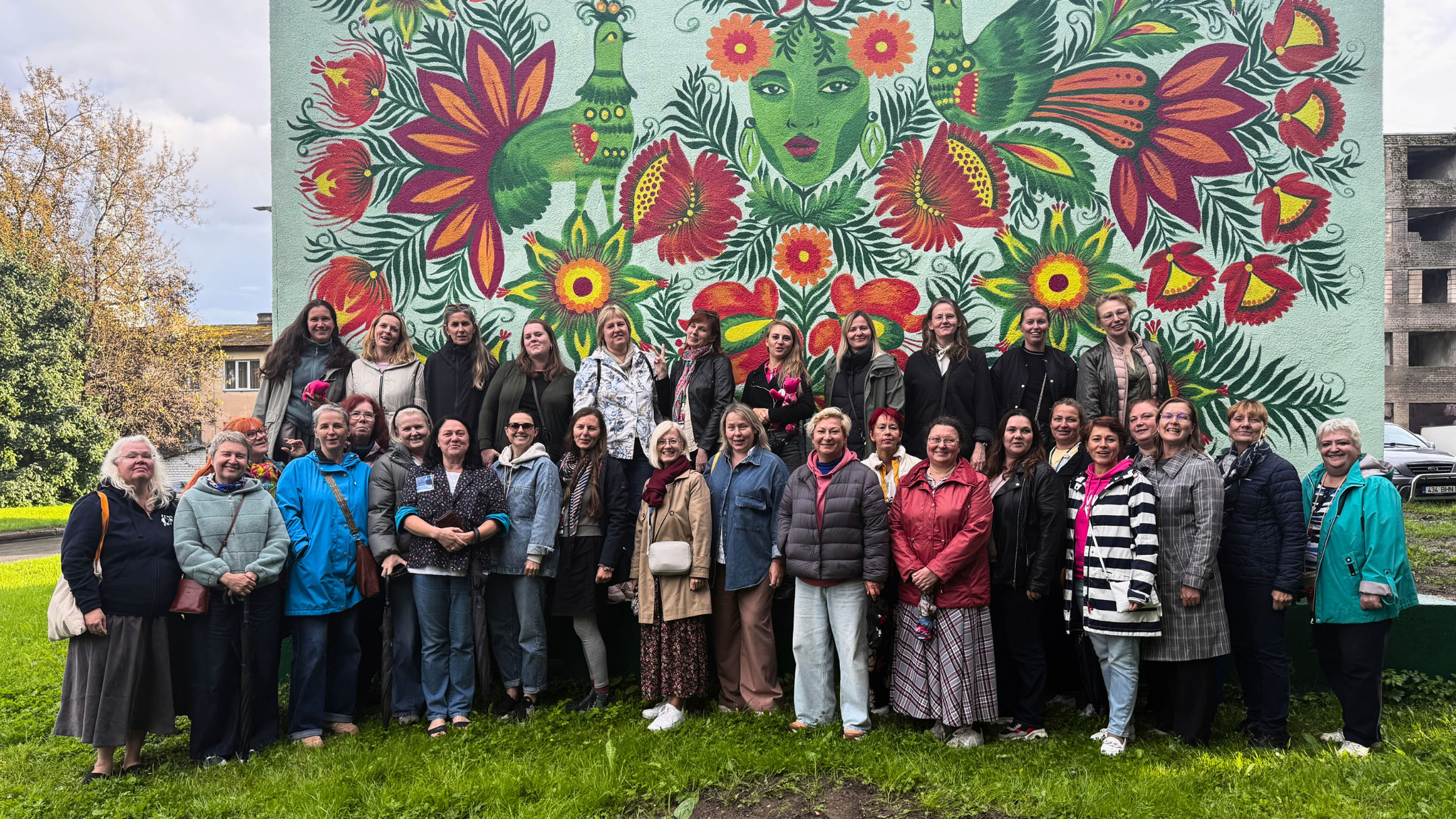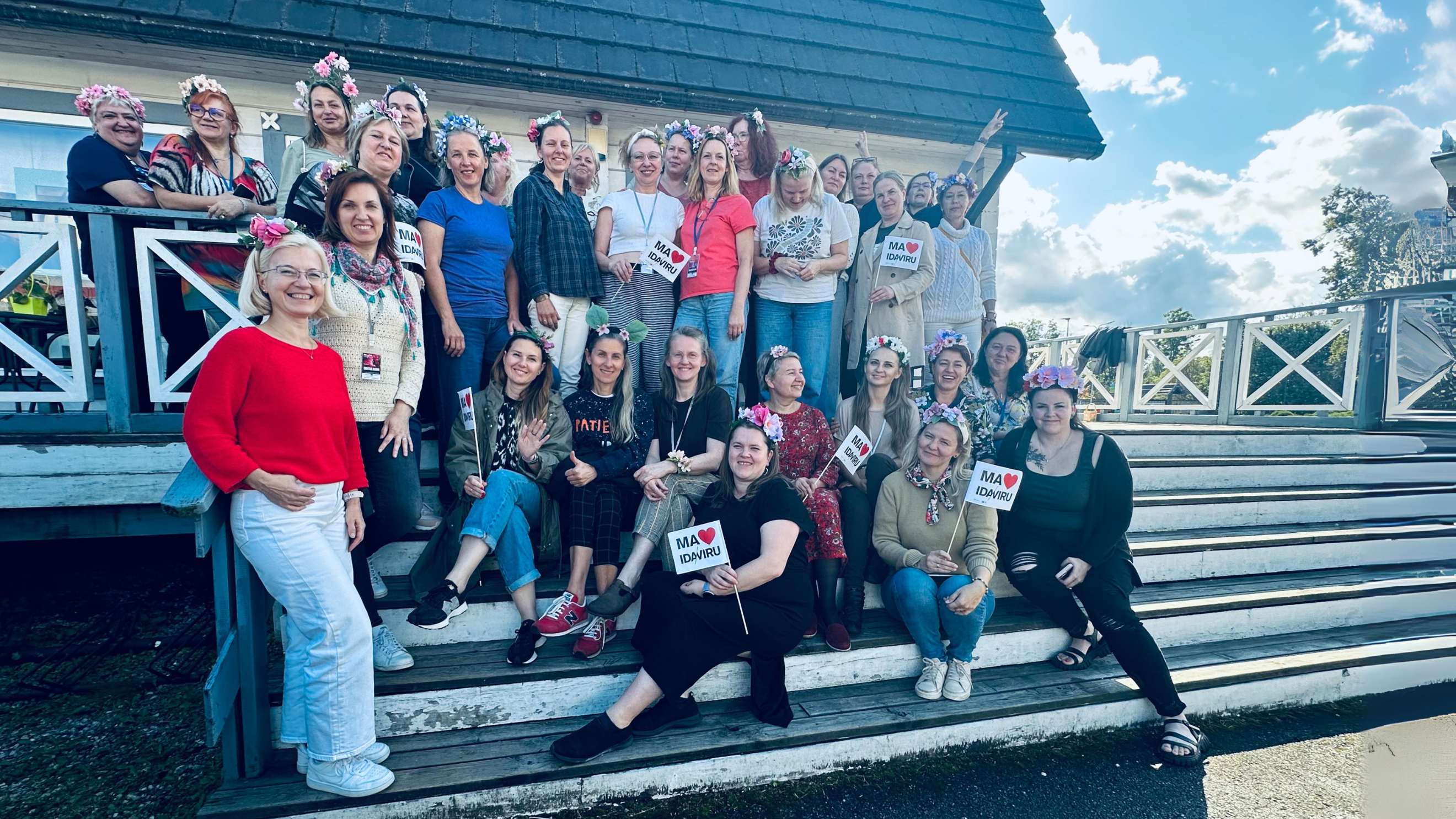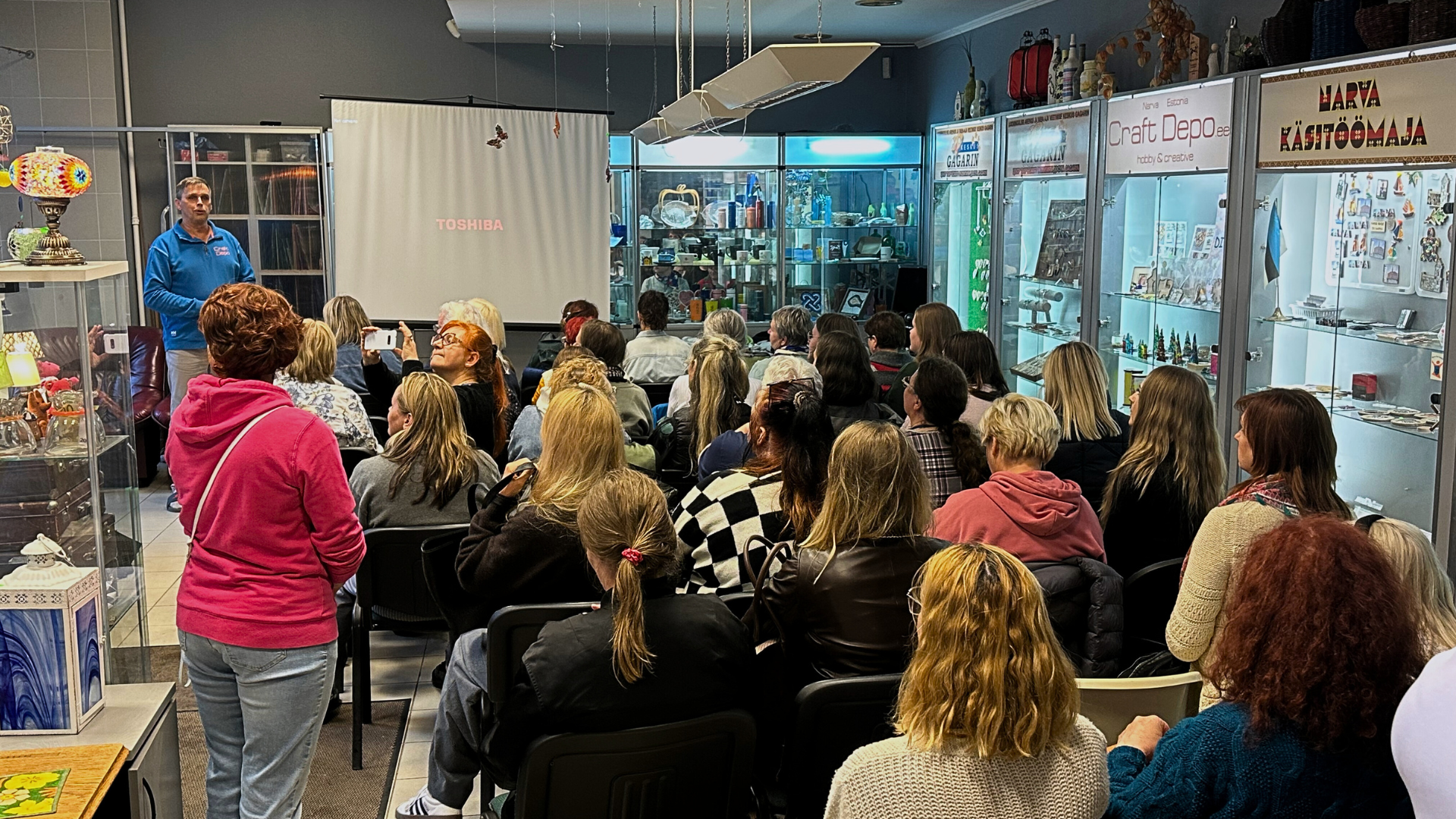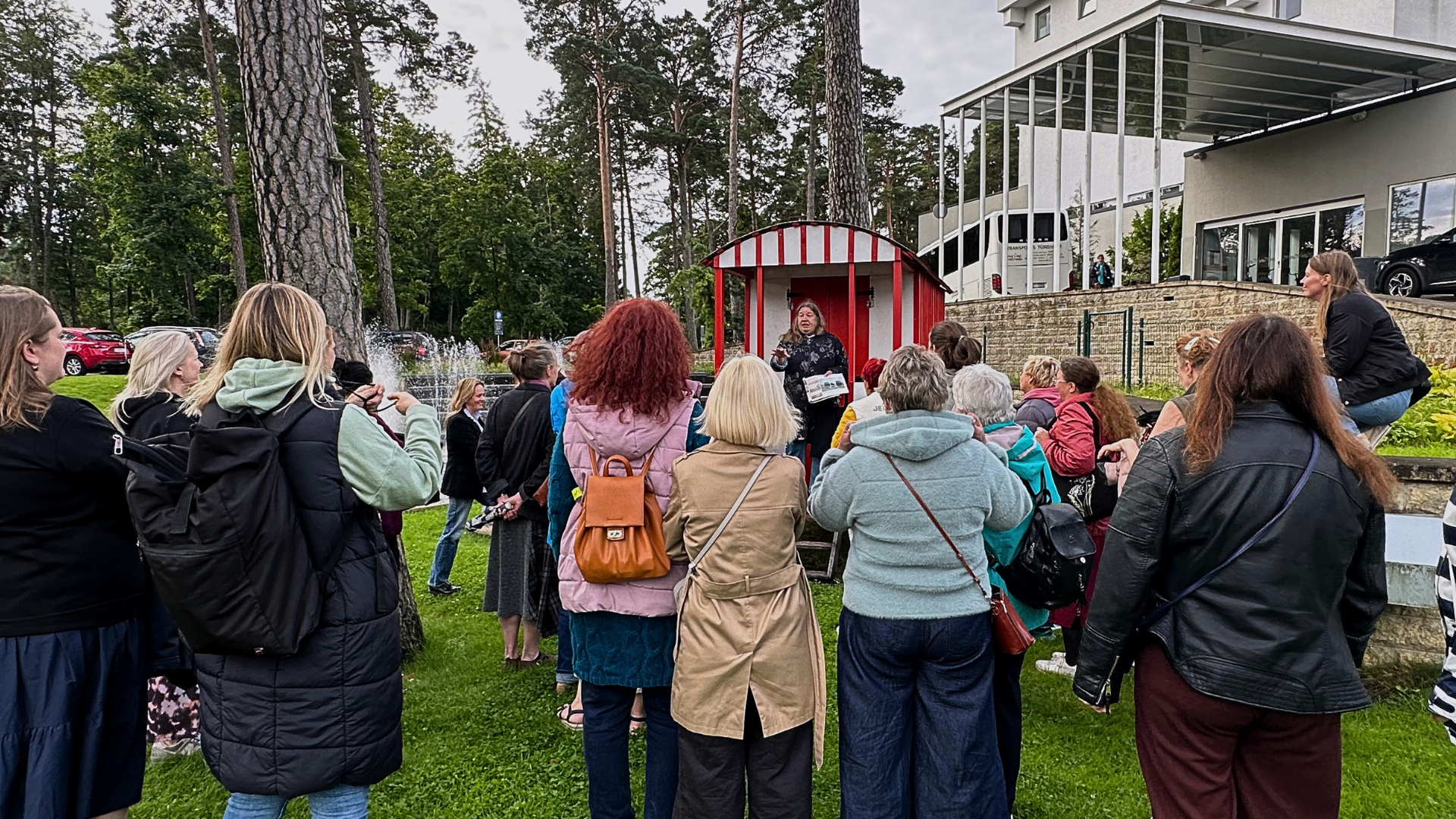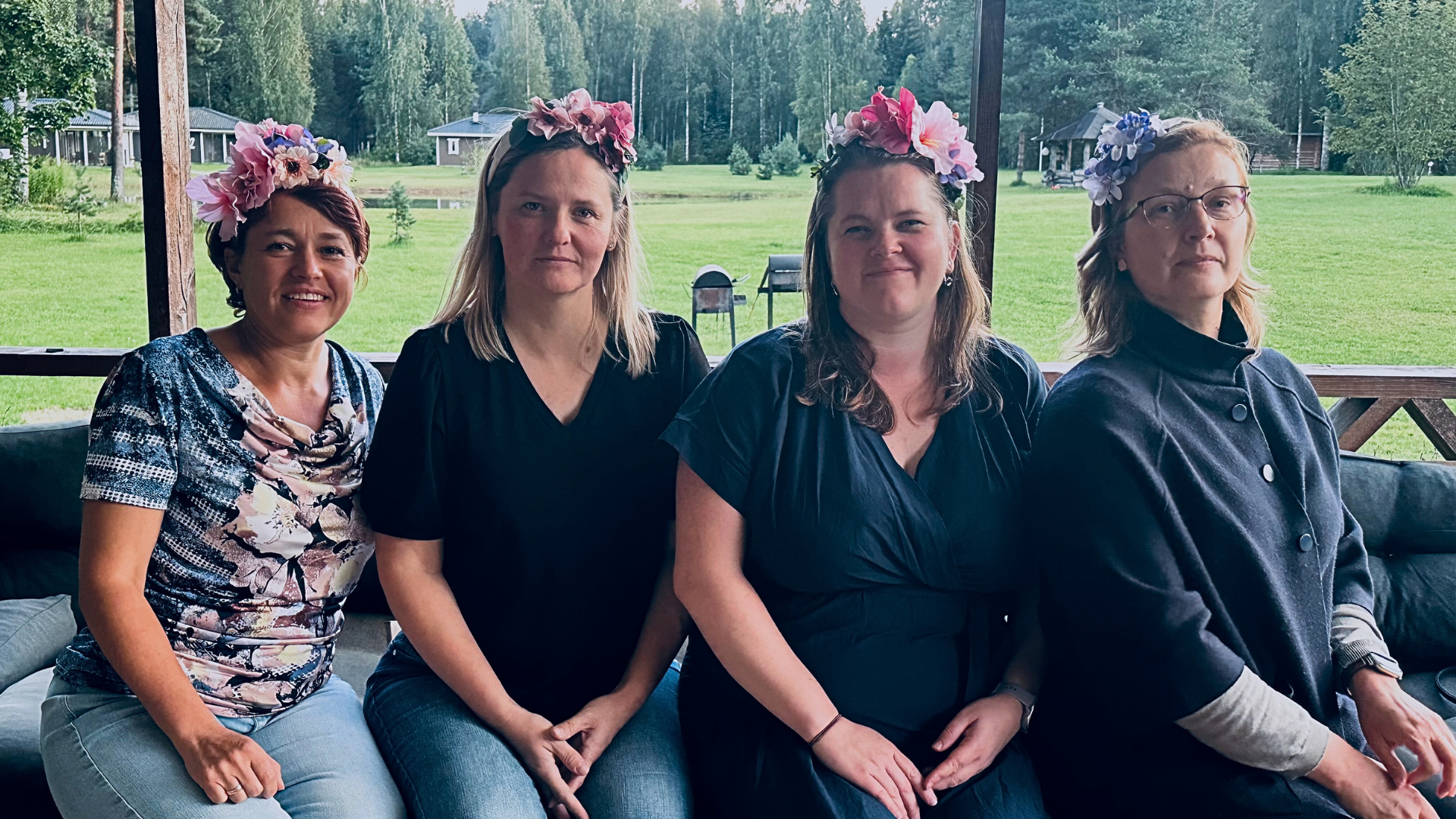Creative Bloom in Ida-Virumaa: an international project inspires and supports women from Estonia and Latvia
29.08.2025


PRESS RELEASE
29 August 2025
Creative Bloom in Ida-Virumaa: an international project inspires and supports women from Estonia and Latvia
From 26–28 August, women working in the creative sector from Latvia and Estonia took part in a cross-border study trip. The trip took place in Ida-Virumaa within the framework of the project Creative Bloom: Empowering Female Creative Entrepreneurs under the Interreg Central Baltic programme, coordinated by the Ida-Viru Enterprise Centre in cooperation with the Vidzeme Enterprise Centre. In Estonia, the project was co-funded by the British Council.
During the study trip, participants visited creative entrepreneurship centres in the picturesque locations of Ida-Virumaa and Avinurme, and took part in practical workshops highlighting cross-border cooperation and the role of women in shaping the creative economy.
The journey began in Narva, with the opening event held in the historic Narva Town Hall. Here, old and new acquaintances from Latvia and Estonia met, sharing experiences and achievements from the past year. Participants noted that the project not only helped them to develop and elevate their ideas, but also to build new connections, find like-minded supporters, and boost their confidence along the entrepreneurial path. Special thanks were given to the mentors for their personal contribution, and to the organisers for a well-thought-out and engaging programme.
The day continued at the Narva Art Residency in the Kreenholm area, where participants experienced the artistic energy of the house and discovered inspiring spaces where cultural heritage becomes a source of new forms of international collaboration.
The study trip also included meetings with individual creative entrepreneurs. Jelena Naumova, founder of NGO Kaitstud Elu, shared her story of how an initiative to support people with special needs grew into her personal journey with ceramics. Her clay works link the region’s past and present. According to Jelena, the key to success is the courage to experiment and take the first step, and the greatest joy comes from knowing that her ceramics bring light to every fair day.
NGO Craft Depo, active in the Narva Handicraft House, introduced how teaching became a lifelong vocation – an opportunity to travel, explore new techniques, share knowledge, and organise workshops for the community. Even difficult times, they emphasised, provide inspiration for new ideas and growth.
OÜ Giftstudio presented its handmade knitwear and gifts as a symbiosis of passion, exploration, and business acumen. Founder Irina Gavrilova stressed that entrepreneurship requires flexibility and adaptability, and that family support plays a crucial role throughout the journey. Her personal story as a small entrepreneur was extremely inspiring and motivating for listeners. She spoke about how to restart and continue business in difficult circumstances and how to overcome challenges. At the same time, her experience resembled a historical journey, reflecting the changes in our country and society that have significantly influenced entrepreneurship.
Young yet already well-known photographer Jelizaveta Gross, founder of OÜ OnlookerPhoto, spoke about the power of collaboration and showed how a single photo can change the perception of a product. She encouraged participants to see the world as a game – as that is where creativity begins.
The first day ended with a workshop exploring the world of aromas, guided by a fragrance specialist. Through scents, participants created an honest dialogue with themselves and discovered how strategy, design, and sensory perception can merge into unique solutions for both people and businesses.
The second day began with a guided tour of Narva-Jõesuu. Ivika Maidre, head of the local history museum, introduced the area’s wooden lace ornaments and architectural heritage. Afterwards, participants visited Toila-Oru Park, where a virtual reality tour took them on a historical journey back to Estonia in 1938.
At Toila MereResto, a meeting was held with creative entrepreneurs from the Toila area. Maria, leader of NGO Käsitööveranda, explained how studying traditional patterns inspires new creations and how hand-woven rugs keep community life alive. OÜ Pühajõe Meistrid presented handmade candles that, while burning, leave patterns reminiscent of ice flowers – a symbol of patience and dedication to craft.
Later, a musical workshop took place, led by NGO Alutaguse Folk Musicians, who played Estonian and Latvian folk tunes. In return, Latvian participants taught their Estonian colleagues their traditional dances. Music and movement reminded everyone that culture connects neighbours through shared voices and traditions.
In the evening, the group gathered at Kauksi Guesthouse, where to conclude the second day, each participant made her own flower crown. Combining different workshop materials, every woman created a wreath that reflected her personal style. Laughter, cooperation, and vibrant colours made the activity supportive and friendly, leaving each participant with a lovely memory and new skills.
The final day took participants to Avinurme, known for its woodworking traditions. Avinurme Puiduait offered insight into the company’s long-standing and diverse activities and into product development based on local cultural heritage. Participants also joined workshops – some wove their first basket, others painted on wood or decorated galoshes. The hands-on experience showed how traditional skills can evolve into modern entrepreneurship.
In the afternoon, guest speakers shared their long-term experience in creative entrepreneurship. Successful female entrepreneurs from OÜ Balbat Art and OÜ SING SALE PRO (Etnowerk) spoke about their journeys. They demonstrated how heritage, inspiration, design, and innovation create opportunities to build successful businesses not only in Estonia but also across borders.
By the end of the trip, participants left not only with notes and new contacts but also with invaluable shared experiences and memories. They confirmed that creativity is a tool of empowerment, that small workshops can carry big ideas, and that cross-border cooperation strengthens all parties.
Once again, the Creative Bloom project proved that the creative sector is not only about art or only about business – it is about building communities, opening new opportunities, embracing openness, and fostering collaboration on an international level.

